When it comes to choosing the right vendor, the evaluation process can be a bit overwhelming, right? It's essential to pinpoint the qualities that matter most to your business, from reliability to cost-effectiveness. After all, a good vendor relationship can significantly impact your operations and overall success. If you're curious about how to streamline your vendor service evaluation and make informed decisions, keep reading for some valuable tips and insights!

Clarity of Communication
Effective communication is essential in vendor service evaluation, ensuring that there is clear understanding between parties involved. Frequent updates, such as weekly progress reports, can enhance transparency. Direct contacts, preferably project managers, should be accessible for immediate queries, minimizing delays. Furthermore, feedback loops should be established, allowing for adjustments based on performance metrics or client satisfaction surveys. Utilizing collaboration tools like Slack or Microsoft Teams can facilitate real-time conversations, reducing misunderstandings. Clarity in contract terms, including service level agreements (SLAs) and response times (typically 24 hours), is crucial for maintaining mutual expectations in the working relationship.
Quality of Service Provided
Evaluating the quality of service provided by a vendor is essential for maintaining high operational standards and fostering successful partnerships. Criteria such as adherence to deadlines, responsiveness to inquiries, and overall communication effectiveness play crucial roles in assessing performance. For instance, a vendor delivering goods to a retail chain like Walmart must meet strict timelines to avoid disruptions in inventory. Similarly, consistent product quality, such as fresh produce from suppliers, ensures customer satisfaction and retention. Furthermore, regular feedback mechanisms, such as quarterly performance reviews, can help identify areas for improvement and facilitate better collaboration in future projects. Each evaluation should be based on specific metrics, ensuring a comprehensive understanding of the vendor's capabilities and reliability.
Timeliness and Reliability
Timeliness and reliability of vendors play crucial roles in the success of supply chain management and service delivery. On average, vendors should meet delivery timelines (typically within 5-7 business days) to ensure minimal disruption in operations. Consistent on-time deliveries can significantly impact customer satisfaction, particularly for industries like retail and e-commerce, where inventory levels directly influence sales. Reliability, measured through metrics such as order fulfillment accuracy (ideally above 95%) and the incidence of late deliveries (target below 5%), indicates a vendor's commitment to maintaining dependable service. Regular performance assessments can help identify trends or issues, such as delays during peak seasons, allowing businesses to make informed decisions regarding vendor partnerships and overall operational efficiency.
Cost-effectiveness and Value
A thorough assessment of vendor services emphasizes cost-effectiveness and value, crucial for long-term partnerships. Evaluating the pricing structure involves comparing it to industry standards, ensuring that the expenditure aligns with the budgetary allocations for services such as maintenance, support, and product delivery. Analyzing value includes examining the quality of service rendered, responsiveness to inquiries, and adherence to agreed timelines, which contributes to overall satisfaction. Metrics such as return on investment (ROI) can illustrate the financial benefits gained from working with the vendor, highlighting aspects like increased efficiency or reduced operational costs. This detailed evaluation fosters informed decision-making for future procurement strategies within the organization, enhancing operational productivity.
Responsiveness and Support
Vendor service evaluation emphasizes key factors like responsiveness and support. Timely responses to inquiries (ideally within 24 hours) indicate strong customer service. Availability of multiple communication channels (email, phone, chat) enhances convenience for clients. Support quality, demonstrated through knowledgeable staff and effective problem-solving, is critical for maintaining smooth operations. Tracking resolution times can reveal efficiency in addressing issues. Additionally, the presence of regular check-ins or feedback mechanisms (surveys, follow-up calls) reflects a vendor's commitment to ongoing customer satisfaction.

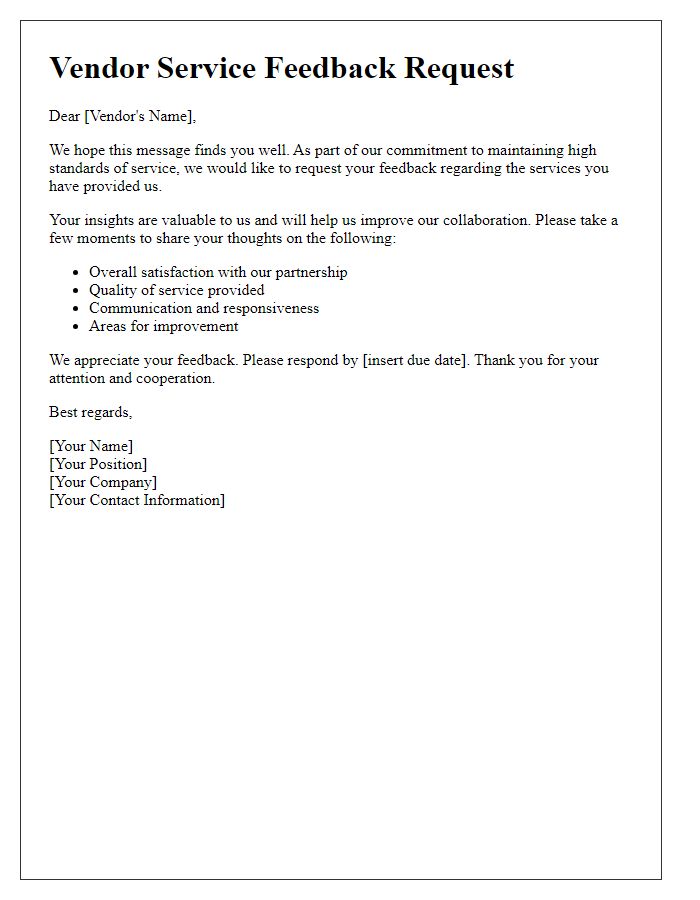
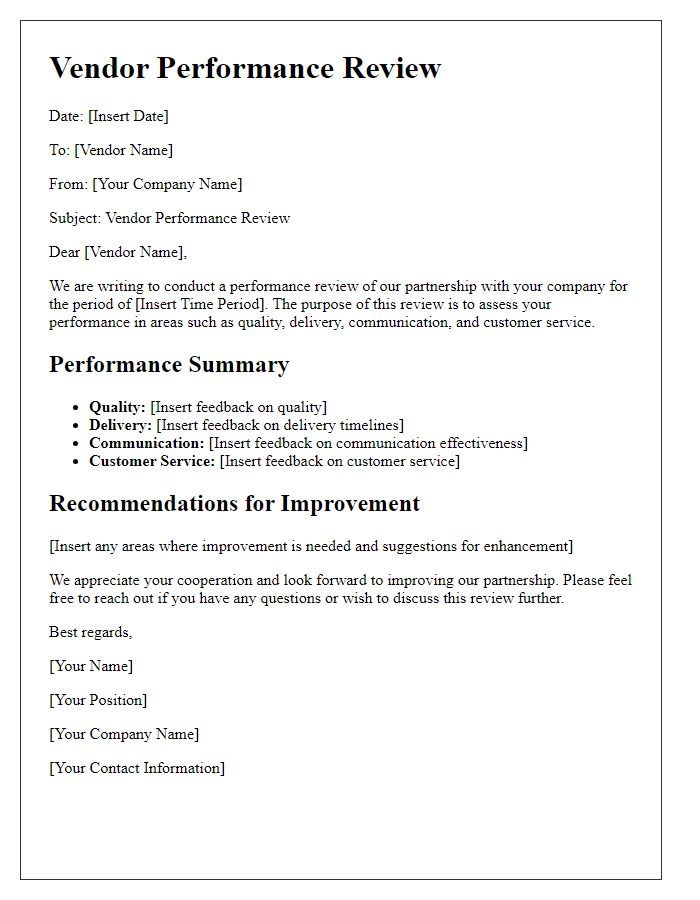
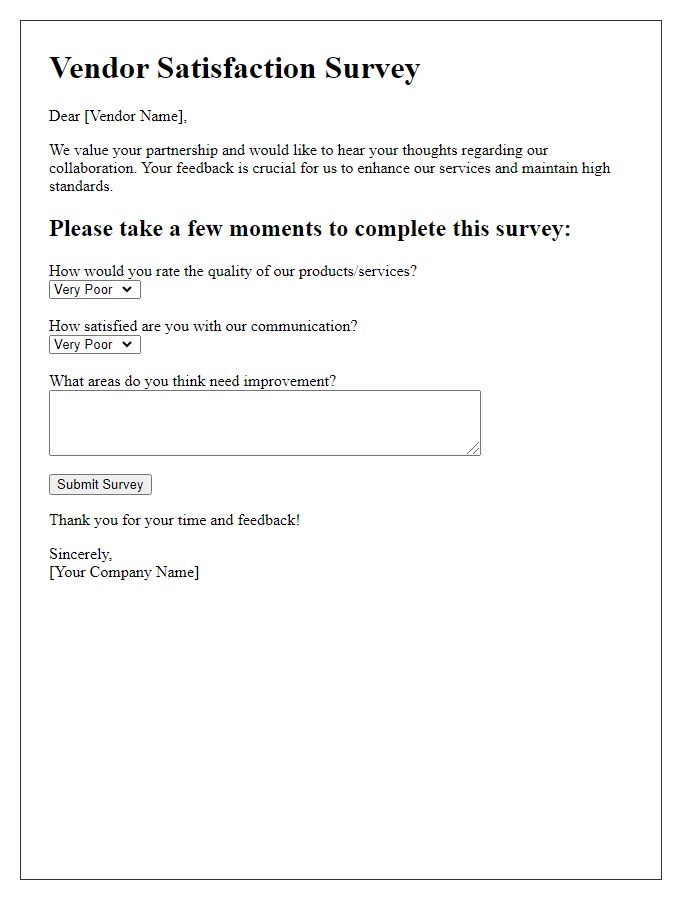
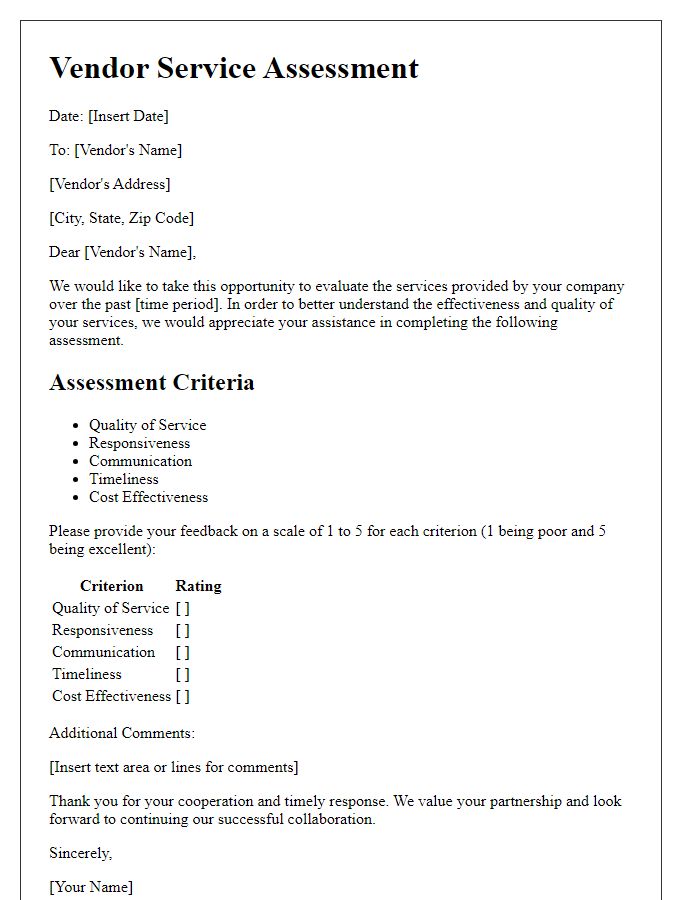
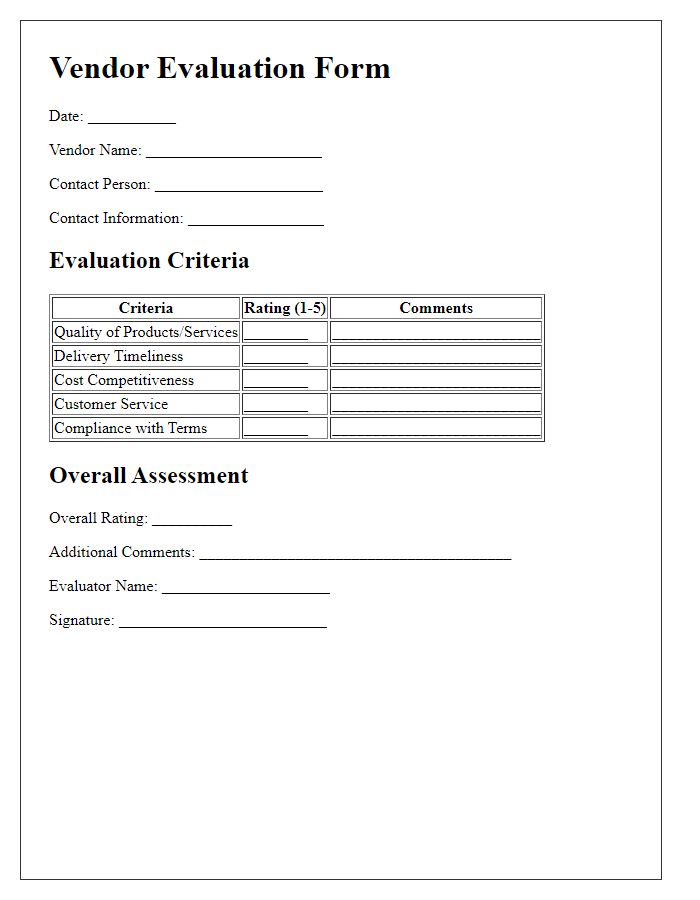
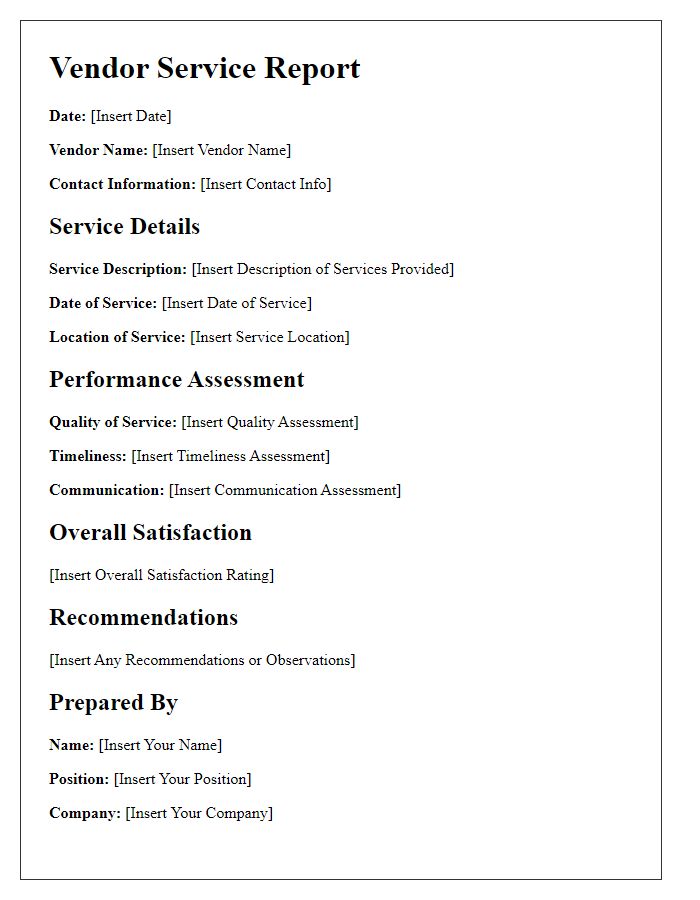
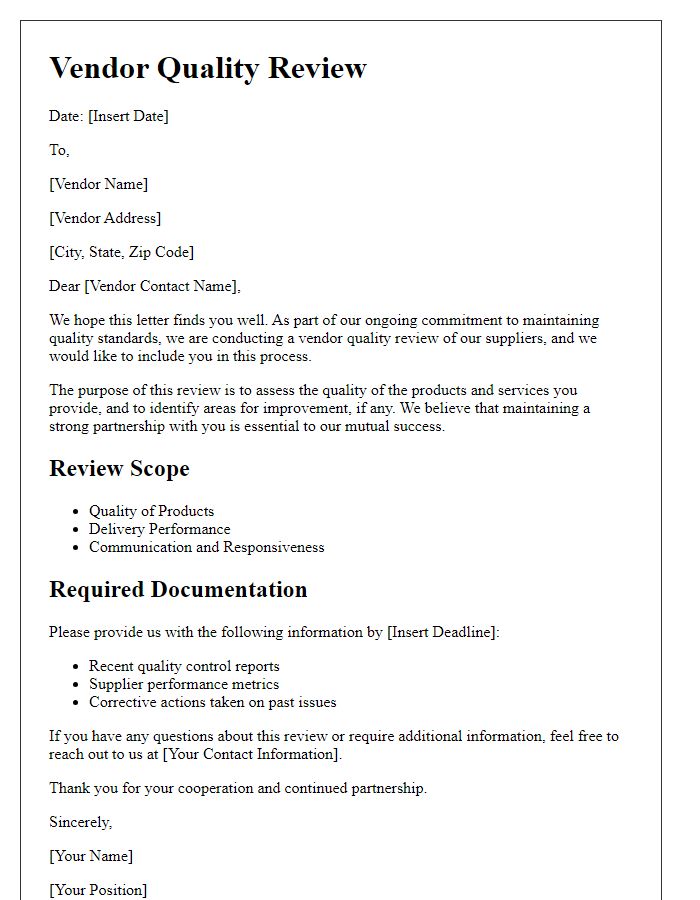
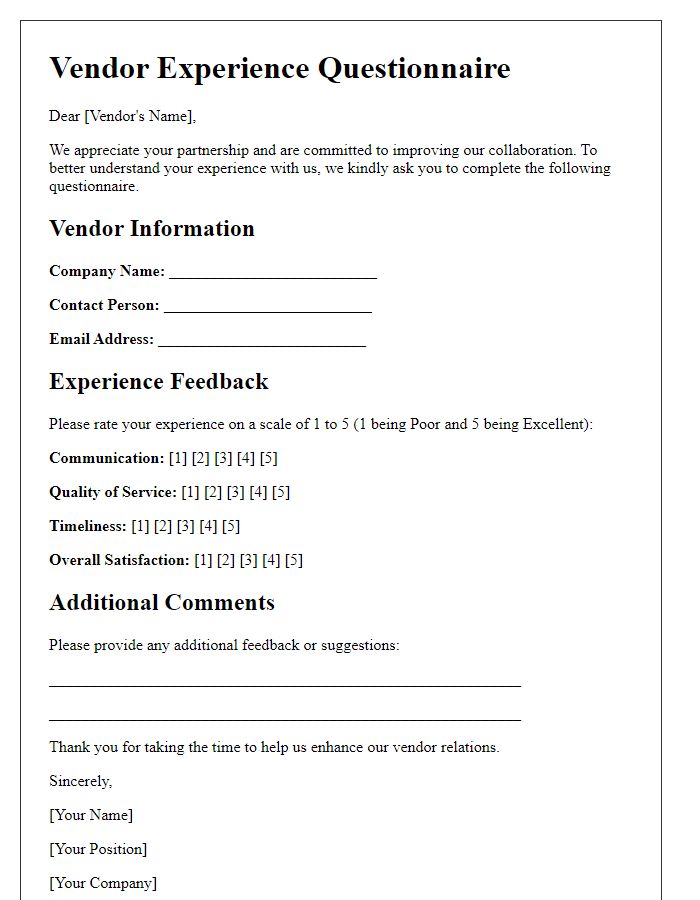
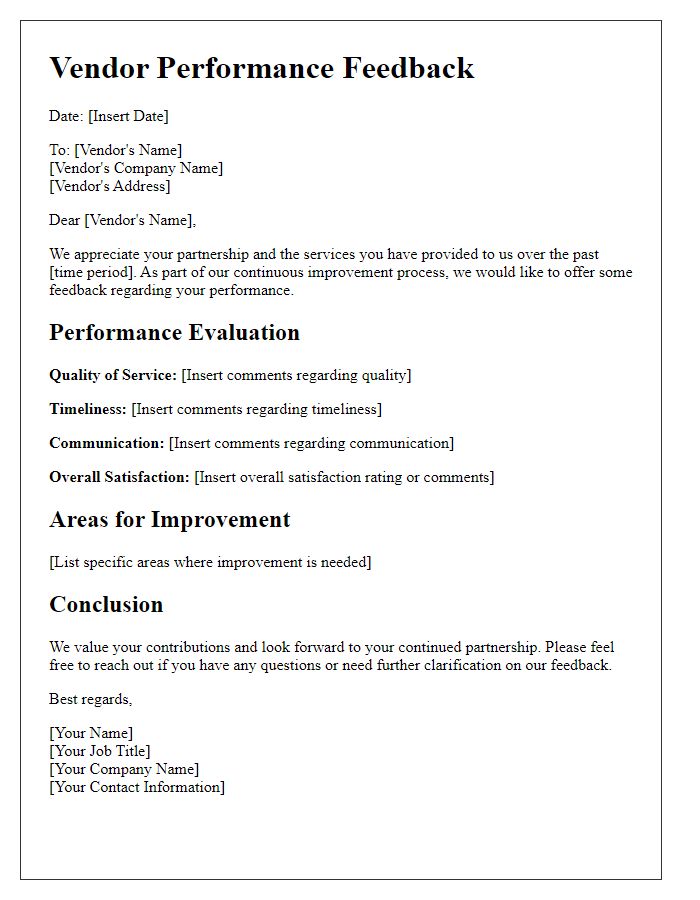
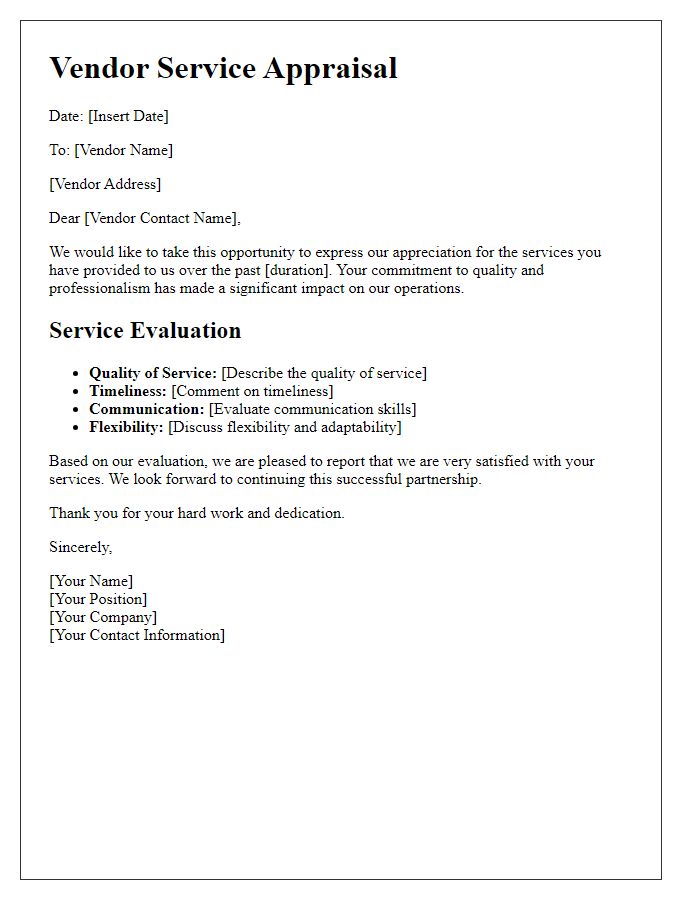


Comments